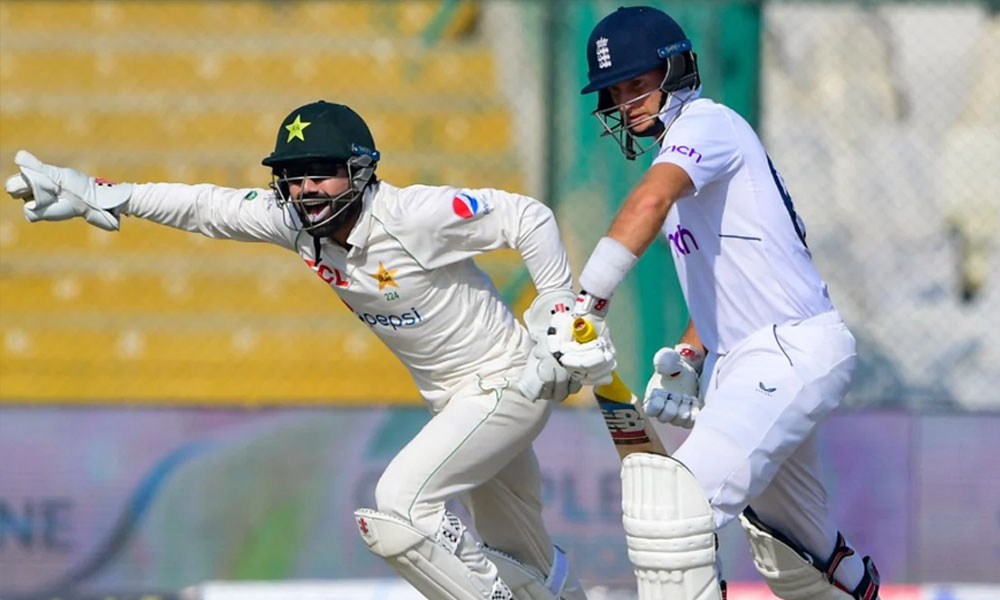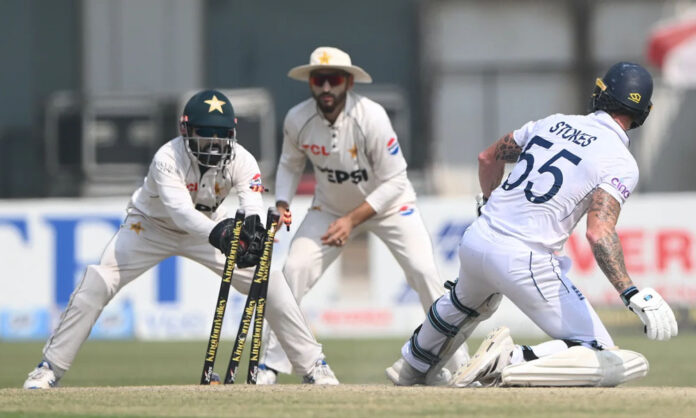Pakistan cricket had a week to remember, as fans across the nation celebrated a long-awaited victory in the Multan Test against England. It was their first Test win on home soil since February 2021 when they defeated South Africa under Babar Azam’s captaincy.
But this time, the captain wasn’t Babar. The reins were in Shan Masood’s hands, who had struggled as captain in his first six matches before pulling off this much-needed win.
However, this brings up an important question: Has Pakistan found a reliable formula for success, or is this just a one-off victory?
Read More: Mohammad Hafeez Takes A Dig At Players’ PR Agencies
A Changing Cricket Landscape
A lot has changed in Pakistan cricket since that 2021 win. Babar Azam, who was once the all-format captain, no longer leads the team in any format. Shan Masood, the new red-ball captain, had a tough start, losing his first six Test matches.

But the win against England felt like a breakthrough moment for him and the team. That said, one victory doesn’t necessarily mean we’ve cracked the code.
The Pakistan Cricket Board (PCB) is reportedly working on creating a similar pitch in Rawalpindi for the third Test against England—a dry, underprepared surface like the one in Multan, which favoured the spinners. It worked in Multan, but can this strategy guarantee future success?
Will ‘Multan Formula’ Always Work?
Pakistan’s spinners Sajid Khan and Nauman Ali were heroes in Multan, taking all 20 wickets between them, becoming the seventh pair in history to achieve this feat in a Test match. But while this tactic of preparing spin-friendly pitches worked against England, it’s not a surefire strategy for every series or opponent.

England’s “Bazball” approach is aggressive, especially when playing on batting-friendly tracks or against pace attacks. Their batters are stroke players, often thriving on pace, with Joe Root being the exception as a more traditional Test player.
So yes, Pakistan outsmarted England by exploiting the conditions that didn’t suit their style of play. However, relying on this method alone may not always bring success.
Read More: BCCI Shuts Down Reports Of PCB’s Travel Offer For Champions Trophy
A Broader Challenge
What Pakistan needs now is consistency, and that doesn’t just come from pitch preparation. We can’t always count on dry surfaces or the weakness of the opposition. Our batters need to step up and learn how to survive and thrive in varying conditions.
At the same time, Pakistan needs a balanced bowling attack—one that can take 20 wickets not just on spin-friendly pitches but on any surface, anywhere in the world.
This win is a step in the right direction, but it’s not the end goal. Test cricket demands adaptability, and we need a more rounded approach to achieve long-term success.
Stay tuned to Brandsynario for the latest news and updates.







































